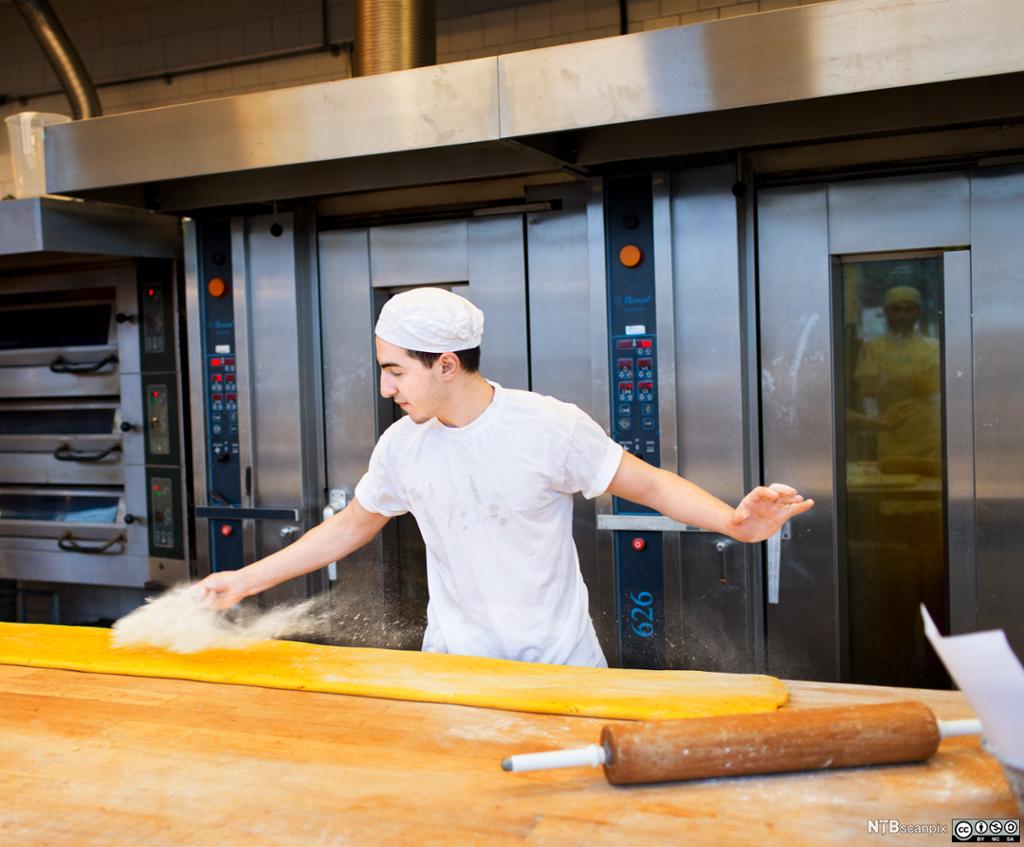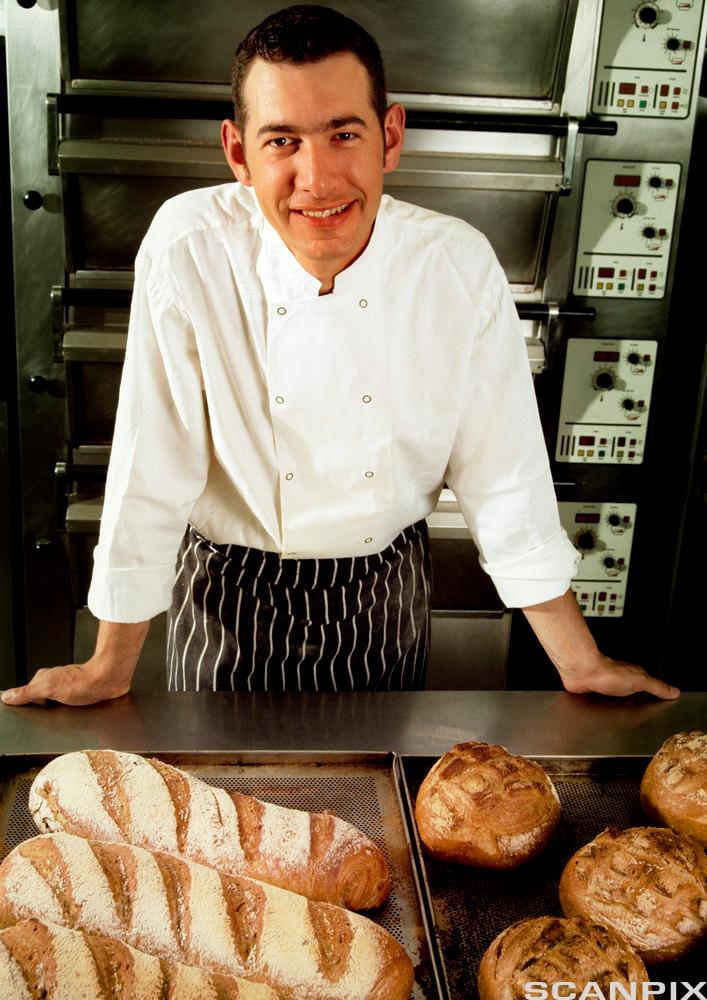Before listening, use the dictionary to check that you know the meaning of the following words: involve, produce (n), sourdough, loaf, perseverance, excel, competitive, catering, event, petit four, patisserie, independent, approve
A transcript of the interview
Good afternoon, can I begin by asking what’s your name and profession?
My name is Justin Gorday and I’m a baker and shop owner.
And whereabouts do you work, Justin?
In Brighton in Sussex.
So why did you choose to be a baker?
I got involved because my brother started a bakery about 15 years ago. I started to sell the produce at farmer’s markets, local produce markets and also to work in the bakery, the wholesale bakery, which he started up after a small shop. I got more and more involved and in the end decided to start my own shop, in partnership with my brother.
Fantastic, so could you perhaps just run through what a typical day looks like?
Yeah, I get up at 02:15 in the morning and I’m at work by 03:00. We start by baking the sourdoughs which we’d prepared the day before, speciality breads. Then I’ll be preparing and baking loaves until about nine or ten o’clock. Then I might do a little bit of office work, back upstairs to check the shop and then home for a snooze. And maybe back in the afternoon for more work.
What personal qualities would you say that you need to be a baker?
You have to enjoy routine. You have to have perseverance. It’s quite difficult getting up early in the morning, so you obviously have to be able to deal with that. You have to want to make, well I think you have to want to make a very good product. You have to want to excel, because nowadays it’s quite a competitive field.
Could you possibly describe one or two services that you provide?
Well, as well as obviously selling products in the shop and making coffee for people, we have some people sit in, we also do catering for weddings and events like that. We will do quiches and petit fours, which are small patisseries and tarts and cakes and things like that.
What would you say that you like best and least about your job?
The best, I like having a successful day baking, when everything goes perfectly. I also like buying new machinery, I like improving the patisserie and bakery and I like creating new products. The least, I suppose, the least I like is when days just go on and on and on, and you don’t seem to be able to get away, because it can be exhausting. That’s the hardest part of the job.
How do you think baking would change in the future?
Well, funnily enough, I think it’s going to be, it’s going to revert to having more small independent bakeries, because it’s increasingly popular. You’ll have pocket bakers or small producers, rather than mass producers. There will, I think, be an increase in also medium-sized producers, so semi-industrial, if you like. And I guess on average, the price of bread is probably going to go up as a result, a little bit. I think people are getting more food aware, so I think that that will be something that will be accepted by the public. But hopefully, generally an increase in good quality bread.
And finally, where do you see yourself in five to ten years’ time?
A little bit less tired and maybe with another one or two shops.
Brilliant, thank you very much.
Thank you.

